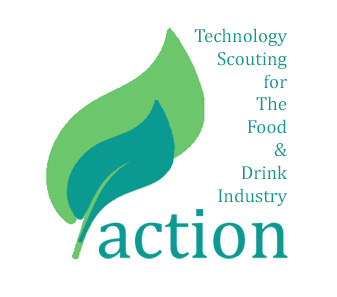Personal Health
There are two key trends driving the food and beverage industry into 2022: Personal Health and Planet Health. The following article breaks down some of the technologies, ingredients and solutions behind the first of these.
Immunity as Foundation of Personal Health.
Management of physical conditions and boosting of immune health were a key part of the physical self-care landscape prior to the pandemic. The emphasis of preventative measures has now shifted to those most closely associated with respiratory diseases. Research into immune health, particularly those that are natural, wholefood ingredients, holistic, and derived from ancient traditions has become of particular interest. Superfoods, that are high in antioxidants and immune-boosting vitamins and minerals, are a standard feature in functional foods, with the focus now shifting to interactive nutrient groupings, for example: Research suggests there is tri-synergistic effect of Zinc, Vitamin C & D on immunity. Consumers want more ‘bang for their buck’ and what better way to do this than to pair micro-nutrients more intelligently to improve bioavailability and, ultimately, health? Adaptogens, derived from ancient holistic regimes, continue to gain prominence as they are believed to support the immune system and protect the body from stress and inflammation; think ginseng, reishi and turmeric.
In 2021, The International Scientific Association of Probiotics and Prebiotics (ISAPP) produced a consensus statement on the definition and scope of postbiotics. The definition agreed was “Postbiotics can be defined as a preparation of inanimate microorganisms and/or their components that confers a health benefit on the host”. This has aided research and more attention is being given to Postbiotics, typically compounds produced as a by-product of the fermentation process carried out by probiotics. From a product formulation perspective, postbiotics are not live and therefore are stable during processing and storage, enabling more options for products that promote gut-health and by extension, holistic and respiratory benefits.
Pre- and Pro-biotics, now also a common feature on the preventative personal health landscape, are also more relevant than ever. The links between risk factors, such as weight, and outcomes for those contracting respiratory diseases such as Covid, means that food and beverages that can reduce those risk factors are in demand. The concept of the gut-brain axis is developing, and it is now beginning to be understood that the health of the gut influences the whole body, including the respiratory system. This is likely to be explored and built-upon as the world begins to live with the tail-off of the pandemic.
Feeding the mind.
Discussions around the importance of good mental health are at an all-time high. Mental health and stress reduction are key consumer concerns. Remedies to promote calm, mental clarity and promote quality sleep are in demand. Firstly, a calm mind requires a looked-after body and so the concept of holistic health is important. Increasingly popular ingredients that offer benefits ranging from relaxation through to providing natural sources of energy include certain adaptogens and nootropics (cognitive enhancers). Secondly, mood enhancement can also be derived from certain behaviours. The notion of ‘little treats’ which provide comfort, nostalgia or escapism continue to be sought.
There is a less tangible element of the concept of mental wellbeing which is related to feeling connected, belonging and doing good. The idea that a person can feel good by purchasing and consuming a product that is supporting a community, either that of an ingredient supplier or a local community or good cause, should not be overlooked. An increasing number of products have launched in recent months that promote social equity and community care, as well as those seeking to address climate change and food waste such as through utilisation of surplus and by-product ingredients; those that are ‘waste’ from other food processes. The challenge of assisting with mental wellbeing should also be viewed holistically.
Clean Conscience: Beyond Clean Label.
Clean-label extends beyond ‘store-cupboard’ to provenance, transparency and sustainability and is an expectation in all diets. Clean now translates to trust, which has more importance as consumers navigate a more health-conscious world. ‘Clean label’ is synonymous with ‘natural’, ‘wholefood’, ‘provenance’, ‘minimal processing’, ‘artisanal/traditional processing’, and so on….
Consumers are expecting to see social audits as well as environmental audits. Descriptions relating to recyclability of packaging and sustainable processes are now expected by consumers. More progressive brands are now supporting social projects that are either local (feeding the local homeless) or remote (water aid charities) as a way to off-set/give back. Combined with carbon labelling and resource efficiency, this is an essential part of supply chain transparency and the development of trust with an increasingly aware consumer base. The application of Blockchain to trace-ability is the next step in achieving an unbroken chain of evidence and food security for a growing population in a climate-fragile world.
There is a movement against ultra-high processed foods which have been shown to provide less nutrition as a result of the processing compared with minimally processed foods. This is likely to present a dilemma for many manufacturers of convenience foods and also for the producers of vegan products. Ultra-high processed foods are those with a long ingredient declaration that include ingredients that are not easily recognised as those used in home cooking. Plant-based diets are now mainstream for vegans, vegetarians and flexitarians alike. Advances in minimally processed plant-protein, across all formats, will be required to meet the health of the consumers and also of the planet.
These topics are all focussed on the key elements of personal health and well-being, the big challenge remains to deliver all of this, whilst leaving no carbon footprints.
The Aurora Ceres Partnership Ltd is a specialist food and beverage innovation agency, and provides technology scouting services through its ACTION technology scouting platform and insights in technology-led trends through trendACTION to a wide range of companies throughout the global food and beverage industry.




